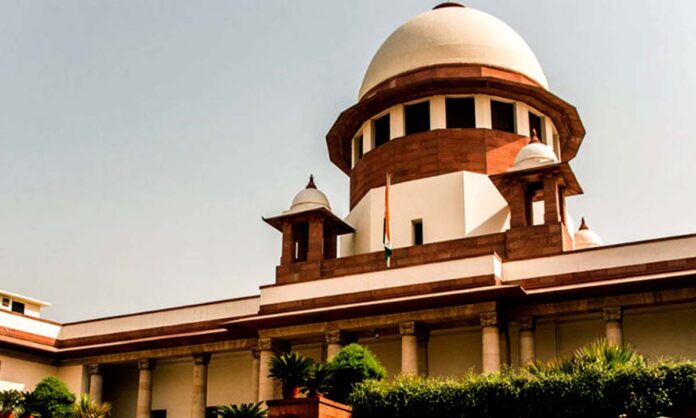A nine-judge constitution bench started considering appeals on Tuesday regarding the question of whether states can enact laws governing the production and sale of industrial alcohol.
Following a 1990 ruling against them by a seven-judge constitution bench, a nine-judge panel headed by Chief Justice of India Dhananjaya Y Chandrachud on Tuesday started hearing a number of challenges regarding whether states have the legislative authority to restrict the sale and manufacture of industrial alcohol.
Judges Hrishikesh Roy, AS Oka, BV Nagarathna, JB Pardiwala, Manoj Misra, Ujjal Bhuyan, Satish Chandra Sharma, and Augustine George Masih were among the other members of the bench that heard arguments. Uttar Pradesh is the primary petitioner in a group of thirty appeals that the nine-judge bench is considering.
Together with advocate Samar Vijay Singh, senior advocate Dinesh Dwivedi began the arguments on behalf of the Uttar Pradesh government by drawing attention to the mistakes in the 1990 Synthetics & Chemicals Ltd. v. State of UP ruling, which eliminated the state’s authority over industrial alcohol even under Entry 33 of the Concurrent List. Trade and commerce in the manufacture, distribution, and supply of certain industrial goods are covered by this category.
According to Entry 8 of List II of the Seventh Schedule to the Constitution, the 1990 ruling declared that “denatured spirit” is industrial alcohol and that states’ legislative authority to restrict its sale will not extend to “intoxicating liquor.”
According to Dwivedi, the bench will address whether or not states have the authority to enact laws addressing and regulating industrial alcohol. “The Centre did not have any jurisdiction in this regard; excise, spirits, and spirits, including industrial alcohol, have always been part of state jurisdiction,” the attorney stated.
He claimed that the 1990 ruling was incorrectly made in this regard. On Wednesday, he will continue his arguments. In December 2010, the dispute was moved to the nine-judge bench because the five-judge bench had doubts about the 1990 judgment’s accuracy.
The state had appealed, through Dwivedi, a 2004 ruling by the Allahabad High Court ordering it to reimburse distillery units for all fees collected under “industrial alcohol,” plus an additional 10% yearly interest that would have been due to the business units.
The distilleries are also in front of the highest court, challenging the state’s authority to charge fees. They contend that under Section 18G of the Industries (Development and Regulation) Act, 1951, the Centre alone is responsible for regulating industrial alcohol. Attorney General R. Venkataramani will lead the Centre in these proceedings; the Centre has not yet submitted an affidavit.






